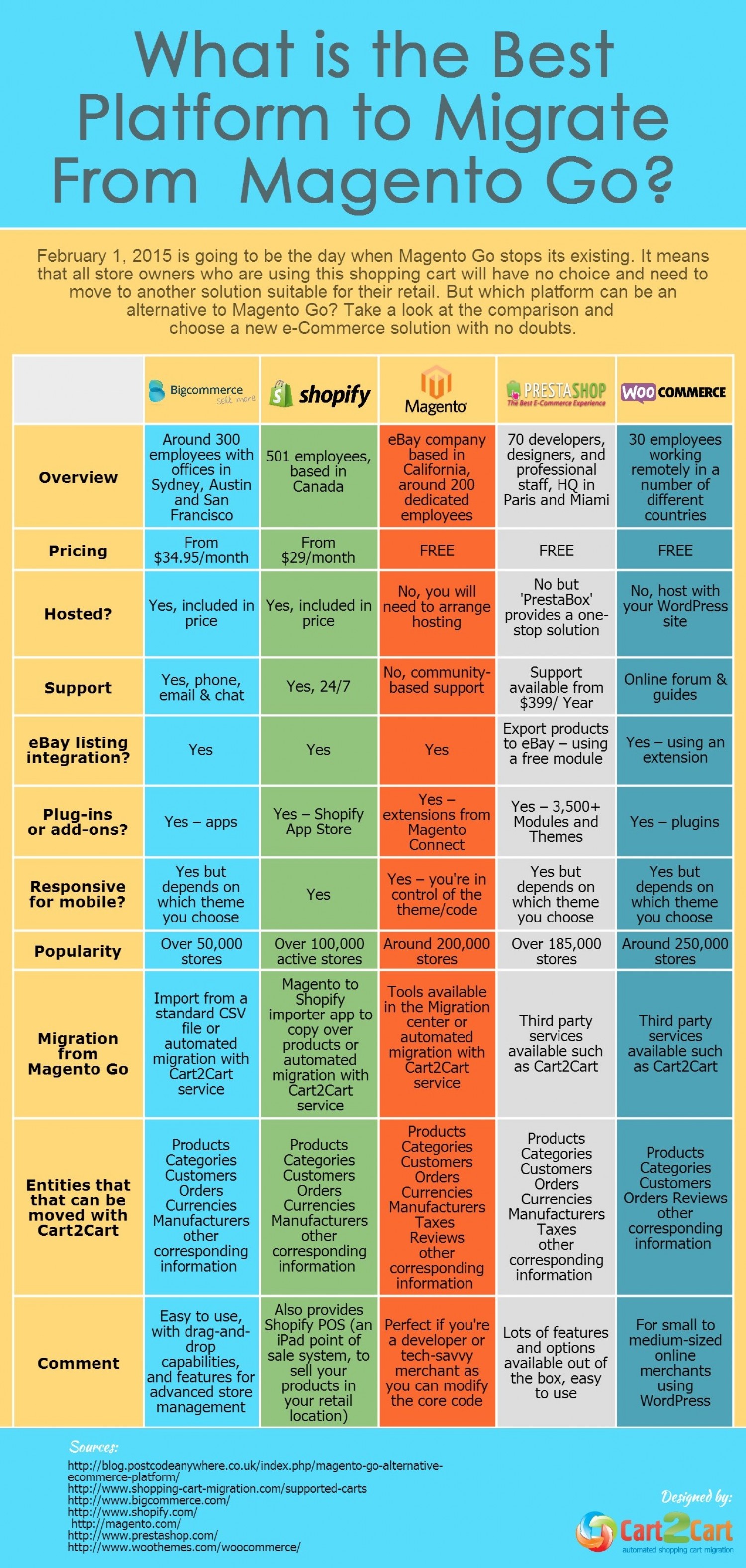![Migrate from Magento Go - Compare the Alternatives [Infographic]](http://www.shopping-cart-migration.com/wp-content/uploads/c2c_blog_featured1.png)
Ebay closed Magento Go. Consequently, merchants who were using this platform had no choice and needed to switch their shopping cart. Luckily, there are a lot of other e-Commerce solutions that appeared to be alternatives to Magento Go. All of them provide different sets of features and can meet demands of every customer. To understand what makes a platform robust, consider the core elements of a perfect shopping cart. But which will suite your business best? What is the most convenient way to migrate from Magento Go? Keep reading to see the comparison of the popular shopping carts and make your decision.
At first, let’s think which shopping carts are the most similar to Magento Go? Probably, Bigcommerce and Shopify will come to mind. Why? The answer is simple. They are hosted as well as Magento Go. What does it mean? Users don't have to look through hundreds of hosting providers in order to choose appropriate one. However, there are store owners who love Magento and wish to migrate to Adobe Commerce Open Source. For detailed guidance on this process, refer to our comprehensive Magento data migration guide. That is why this open source platform is included to our list. At the same time, PrestaShop is also a popular free solution that worth attention, with many opting to upgrade PrestaShop for enhanced prosperity. WooCommerce is the last shopping cart in the list but not least choice of e-merchants. Every solution provides merchants with the set of distinctive features and different support level. For your better convenience, review our roadmap infographic of this alternatives to Magento Go in the infographic below.

With Cart2Cart you have an opportunity to migrate from Magento Go to all of mentioned shopping carts or to any of a vast array of supported carts.
So, what are you waiting for? Select a new platform and migrate from Magento Go using exclusive Cart2Cart opportunities. If you still have questions about automated transfer, don’t hesitate to contact our Support Team.
Monthly Update – March 2026
March 2026 sees continued momentum in headless commerce and composable architectures, offering unparalleled flexibility and scalability for online retailers. Businesses are increasingly decoupling their frontend presentation layer from backend e-commerce functionalities, allowing for faster iterations, specialized user experiences across multiple channels, and easier integration of best-of-breed services. This approach is particularly beneficial for brands with complex requirements or those aiming for a highly customized customer journey. While the initial setup may involve more technical expertise, the long-term benefits in agility and performance are significant. When planning a migration, consider if a composable strategy aligns with your growth ambitions, allowing you to future-proof your online store against evolving market demands and technological advancements. Evaluate platforms and services that facilitate this modular approach, enabling you to pick and choose the best components for your unique business needs without being locked into a monolithic system. This strategic shift empowers merchants to innovate more freely and respond rapidly to changes in consumer behavior and technology trends.
For more details, explore our FAQ section or schedule a call with a migration expert.


